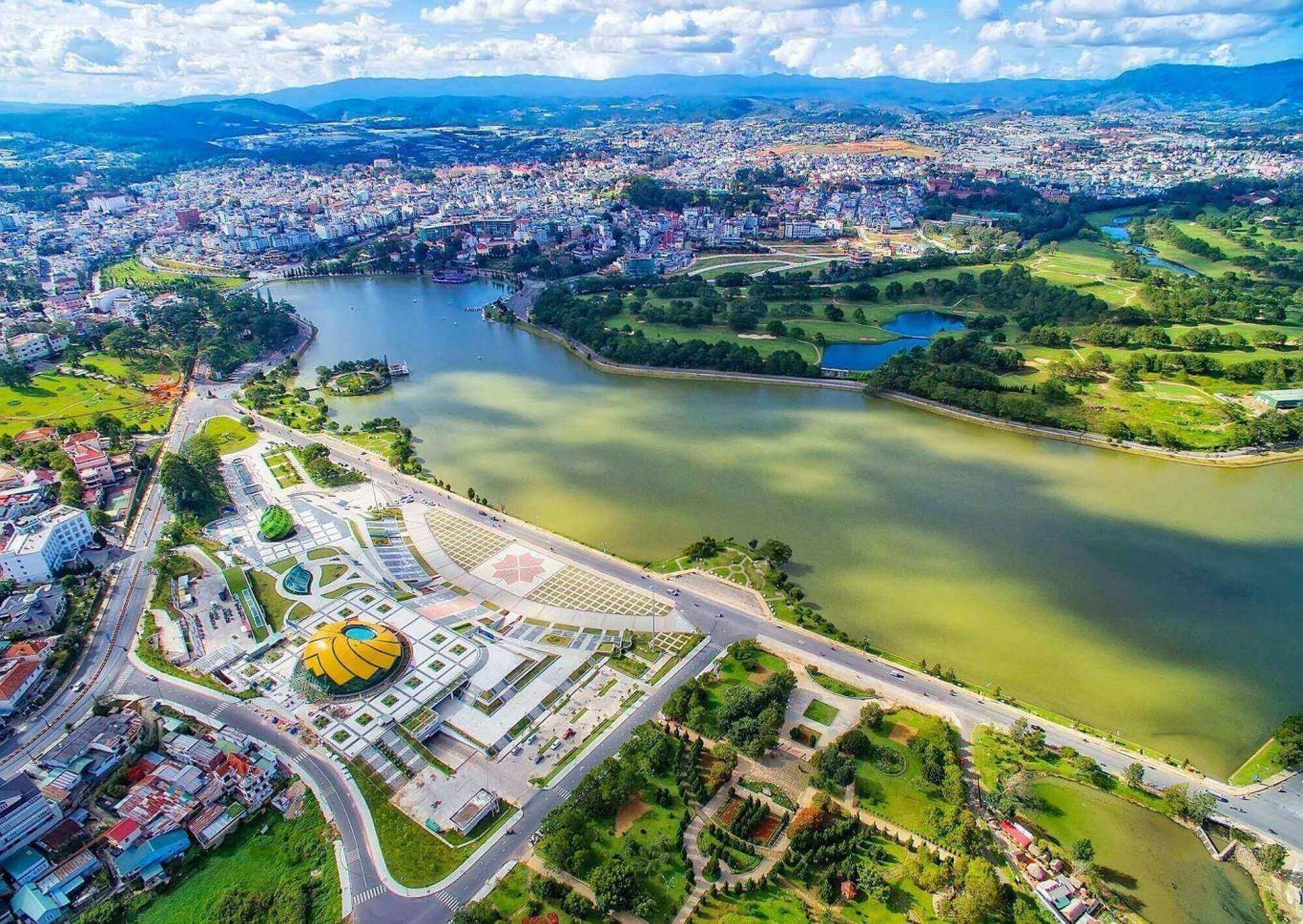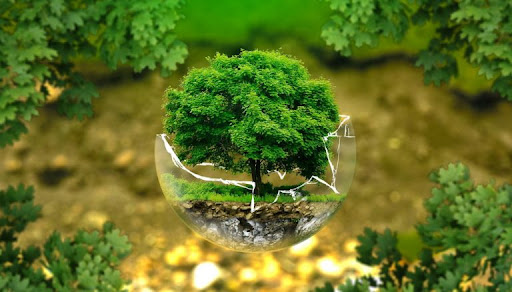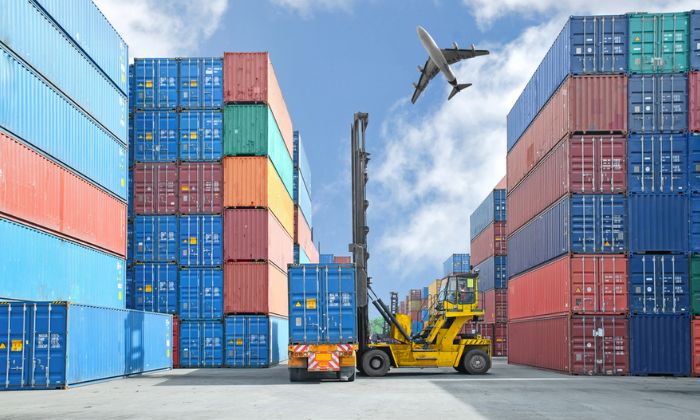Regulations on environmental protection in agricultural production in Vietnam
What are the regulations on environmental protection in agricultural production in Vietnam? - Trung Dung (Tay Ninh)

Regulations on environmental protection in agricultural production in Vietnam (Internet image)
Regarding this issue, LawNet would like to answer as follows:
1. Regulations on environmental protection in agricultural production in Vietnam
Regulations on environmental protection in agricultural production in Vietnam according to Article 61 of the Law on Environmental Protection 2020 are as follows:
- Every entity that produces, imports, sells and/or uses chemicals, agrochemicals, veterinary drugs and fertilizers must comply with regulations of law on environmental protection regulations and other relevant regulations of law.
- It is required to register, inventory, control, manage information about, assess and manage risks and handle chemicals, agrochemicals and veterinary drugs that are highly toxic, persist, spread and accumulate in the environment resulting in adverse impacts on environment and human health.
- Expired fertilizers, environmental remediation products in livestock production, agrochemicals, veterinary drugs, aquaculture feeds and environmental remediation products in aquaculture must be managed in accordance with relevant regulations of law.
Containers of fertilizers, animal feeds, aquaculture feeds, agrochemicals, veterinary drugs, environmental remediation products in aquaculture and products for livestock waste treatment after use, and sludge and feeds accumulated after cleaning of aquaculture ponds must be managed in accordance with waste management regulations.
Sludge dredged from channels and hydraulic structures must be collected, reused, recycled and managed as prescribed by law. Dead animals must be collected and dealt with in accordance with regulations on hazardous waste management and preventive medicine.
- Agricultural by-products must be collected to manufacture products and goods, used as raw materials and fuels, used for production of fertilizers and energy or managed as prescribed; by-products of plants must not be burned in the open air to avoid causing environmental pollution.
- The use of livestock waste as organic fertilizers or for plant watering or for other purposes must comply with the Government’s regulations.
- The State shall introduce policies to encourage innovation of models and methods for agricultural production in a sustainable and climate-resilient manner that saves water and restricts the use of inorganic fertilizers, agrochemicals and environmental remediation products in agriculture; develop environmentally-friendly agriculture models.
- The Ministry of Agriculture and Rural Development shall direct and organize management of sludge dredged from channels and hydraulic structures in compliance with environmental protection requirements.
2. Regulations on environmental protection in construction in Vietnam
Regulations on environmental protection in construction in Vietnam under Article 64 of the Law on Environmental Protection 2020 are as follows:
- Construction planning must comply with requirements for environmental protection and climate change adaptation.
- Planning for urban areas and high density residential areas shall be formulated in a manner that develops eco cities, saves energy, uses renewable energy and ensures the ratio of green space, water surface and landscape as prescribed by law.
- The State shall encourage the reuse of waste generated from construction and use of non-baked and environmentally-friendly materials in construction.
- When issuing construction permits and appraising construction designs of investment projects in accordance with regulations of law on construction, it is required to ensure that works, work items and equipment for waste treatment and works for environmental emergency prevention and response are conformable with regulations of law on environmental protection.
- The construction, renovation, repair and dismantling of construction works must comply with the following environmental protection requirements:
+ There must be measures to avoid generating dust, heat, noise, vibration and light in excess of the permissible limits according to technical regulations on environment;
+ During construction, materials and waste must be transported using appropriate vehicles to prevent leakage, spillage or environmental pollution;
+ Wastewater must be collected and treated in line with environmental protection requirements;
+ Usable solid waste and scrap shall be recycled and reused as prescribed; soil, rocks and solid waste generated from construction shall be reused as production materials and for leveling as prescribed;
+ Soil and sewage sludge generated from excavation, dredging of topsoil and foundation excavation are used to fortify soil for planting trees or suitable soil areas;
+ Sewage sludge generated from septic tanks and cesspools must be managed in accordance with regulations on management of normal industrial solid waste;
+ Solid waste and other types of waste must be collected, stored and transported to treatment facilities in accordance with waste management regulations.
- Waste generated from renovation and dismantling of construction works of households and individuals in urban areas must be collected and transferred to facilities licensed for treatment thereof in accordance with regulations of provincial People's Committees, except for the cases specified in Points d and dd Clause 5 of Article 64 of the Law on Environmental Protection 2020.
- Waste generated from renovation and dismantling of construction works of households and individuals in rural areas that do not have waste collection and treatment systems must be reused or dumped in accordance with regulations of provincial People's Committees; must not be dumped on roads, into rivers, streams, channels and other sources of surface water affecting landscape and environment.
- Provincial People's Committees shall provide for collection, transport and treatment of construction solid waste and planning for sites for dumping of construction waste; sewage sludge from septic tanks, cesspools and water drainage systems.
- The Minister of Construction shall formulate standards and technical regulations on design requirements for solid waste collection systems in line with the classification of solid waste at source of shopping-residential complexes; officetels; complex of mixed-use high-rise buildings.
- Key word:
- Environmental protection
- in Vietnam
- Cases of land rent exemption and reduction under the latest regulations in Vietnam
- Economic infrastructure and social infrastructure system in Thu Duc City, Ho Chi Minh City
- Regulations on ordination with foreign elements in religious organizations in Vietnam
- Increase land compensation prices in Vietnam from January 1, 2026
- Determination of land compensation levels for damage during land requisition process in Vietnam
- Who is permitted to purchase social housing according to latest regulations in Vietnam?
-

- 03 groups of indicators for evaluating the environmental ...
- 16:19, 13/02/2025
-

- Index for evaluating environmental protection ...
- 11:00, 12/02/2025
-

- Amended guidelines on management of environmental ...
- 10:48, 17/01/2025
-

- Regulation on the duration of inspection for compliance ...
- 18:06, 15/01/2025
-

- Suspension of effectiveness of two provisions ...
- 07:22, 06/01/2025
-

- Notable new policies of Vietnam effective as of ...
- 16:26, 11/04/2025
-
.Medium.png)
- Notable documents of Vietnam in the previous week ...
- 16:21, 11/04/2025
-
.Medium.png)
- Notable documents of Vietnam in the previous week ...
- 16:11, 02/04/2025
-
.Medium.png)
- Notable new policies of Vietnam to be effective ...
- 16:04, 02/04/2025
-
.Medium.png)
- Notable new policies of Vietnam effective from ...
- 14:51, 21/03/2025

 Article table of contents
Article table of contents
